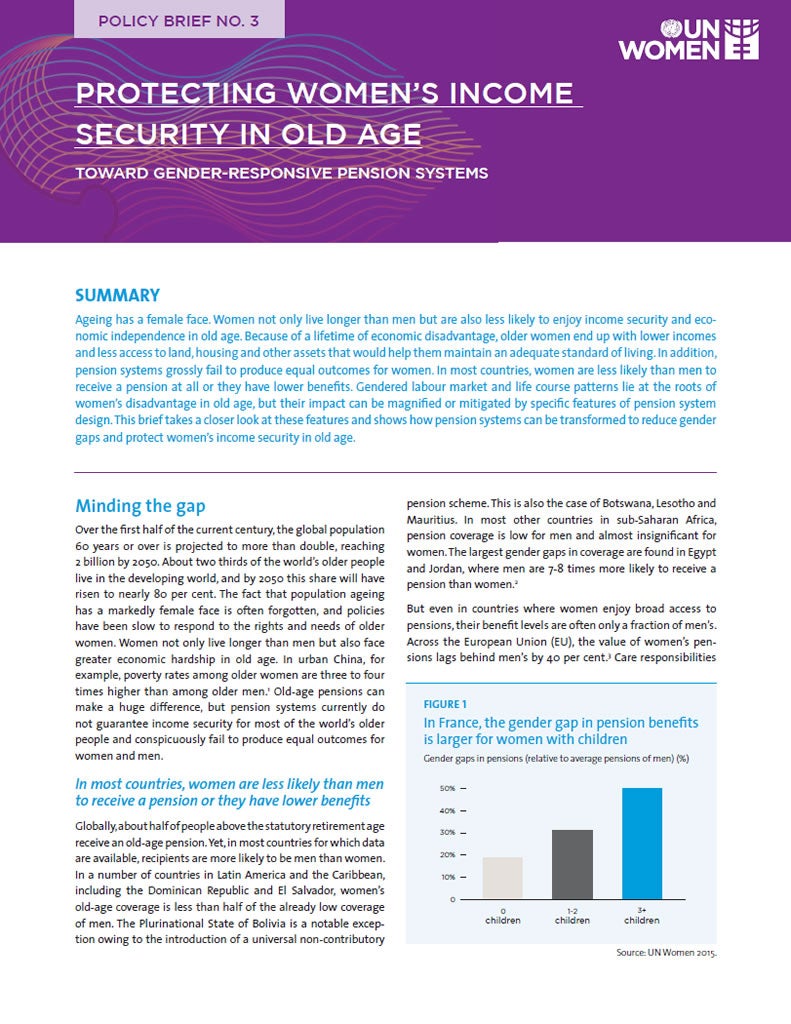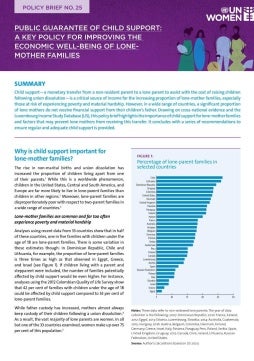Protecting women’s income security in old age: Toward gender-responsive pension systems
This brief synthesizes research findings, analysis and policy recommendations on transforming pension systems to reduce gender gaps and protect women’s income security in old age.
Ageing has a female face. Women not only live longer than men but are also less likely to enjoy income security and economic independence in old age. Because of a lifetime of economic disadvantage, older women end up with lower incomes and less access to land, housing and other assets that would help them maintain an adequate standard of living. In addition, pension systems grossly fail to produce equal outcomes for women. In most countries, women are less likely than men to receive a pension at all, or they have lower benefits.
Gendered labour market and life course patterns lie at the roots of women’s disadvantage in old age, but their impact can be magnified or mitigated by specific features of pension system design. This brief takes a closer look at these features and shows how pension systems can be transformed to reduce gender gaps and protect women’s income security in old age.
This brief draws on key findings of UN Women’s flagship report Progress of the World’s Women 2015–2016.










